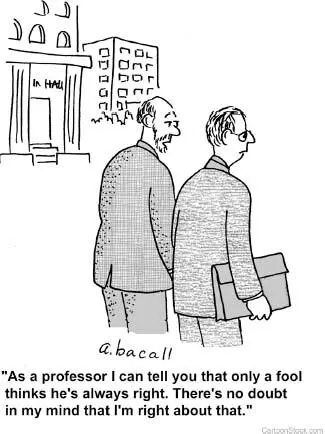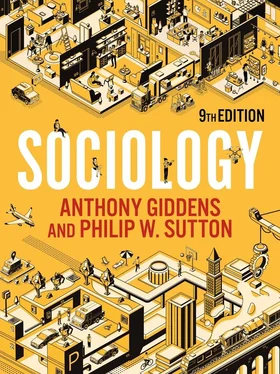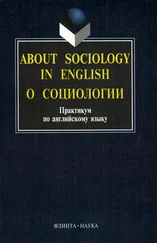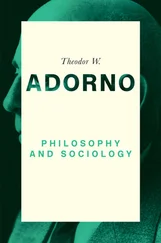Logical positivists adopt a correspondence theory of truth which accepts statements as true only where they ‘correspond’ exactly with what exists in the real world. Hence the key to valid knowledge is empirical verification, and it is the job of scientists constantly to seek out evidence which supports their statements. Logical positivism was highly influential in defining what constitutes a scientific approach to knowledge. But by the late 1930s its central principle of verification was under attack.
Sir Karl Popper (1902–94), a former member of the Vienna Circle, provided the most systematic critique of logical positivism. Popper argued that verification is not a powerful principle, as almost any theory, however unrealistic, can find some evidence that supports its arguments. Verification can never definitively settle theoretical disputes. A much stronger principle is disconfirmation . Broad theories should lead to hypotheses which are, in principle at least, capable of being falsified. Scientists then actively seek out cases that disconfirm or falsify their own hypotheses. In this way, one disconfirming case can tell us much more about the world than thousands of instances of verification ever could (Delanty 1997: 31–2). For instance, we may hypothesize that ‘all swans are white’ and set out to verify this statement. Yet, however many white swans we observe, the hypothesis can never be proved true because non-white swans might still exist. But we need to find just a single black swan in order conclusively to falsify our hypothesis and find a simple truth about the world – not all swans are white.


Karl Popper saw Marxism and Freudian psychoanalysis as unscientific because they offer no criteria for falsification. No amount of verification makes for a solid scientific theory – for instance, no matter how many white swans a researcher might find, it does not rule out the possibility of the existence of a black swan.
Popper suggests that the best hypotheses are not cautious ones but ‘bold conjectures’ which offer the potential for significant knowledge gains. Yet most scientific knowledge is never accepted as universally ‘true’ as it is always open (potentially) to being falsified. In fifty years’ time all black swans may have died out, making our accepted truth about swans (they’re not all white) incorrect. All we can say is that the currently accepted scientific theories and explanations are the best we have because they have not been conclusively falsified – yet. This might appear to be a weak description of science that is at odds with widespread, common-sense ideas of science as producing hard facts and universal laws of nature, but the ‘open’ character of scientific knowledge and the open-mindedness of scientists are both crucial to Popper’s vision. However, in the 1960s and 1970s, detailed work by historians of science called Popper’s version of science into question.
Lessons from the history of science
Probably the most important critique of Popper’s model of science as an open enterprise remains Thomas Kuhn’s The Structure of Scientific Revolutions (1962). Kuhn was less interested in what philosophers thought science should be like and more concerned with what we can learn from the actual history and development of science and its theories. He argued that the history of the natural sciences shows that scientists tend to work within the overall assumptions of a particular theoretical framework – a paradigm – such as Newtonian mechanics in physics, which led scientists accurately to calculate planetary orbits and much more throughout the eighteenth and nineteenth centuries. Scientists become committed to expanding ‘their’ paradigm and practised a problem-solving form of ‘normal science’, which expands the evidence base of the paradigm and teaches its assumptions to new scientists without ever seriously challenging it. Normal science, says Kuhn, accounts for the bulk of all scientific work.
Over time, anomalous findings occur that just do not ‘fit’ into the existing paradigm. In the case of Newtonian mechanics, a crucial failure was the paradigm’s inability to explain the movement of light. Yet, rather than leading to challenges to the existing paradigm, scientists may instead query the data or the experiments that produced them. In short, while Popper expected scientists to work in an open-minded way, Kuhn found that, in practice, they resolutely defended their paradigms, dismissing contrary evidence and shaking off quite legitimate challenges (Benton and Craib 2001: 58–61). Why would they do this? The answer is a sociological one. Science is not an isolated enterprise but takes place within communities of scholars with a shared interest in defending the paradigms within which they have built careers and reputations and earned high status.
Kuhn argues that, at key moments, younger scientists, less bound into and committed to a specific paradigm, work on emerging anomalies and, in order to account for them, are led to devise new theories and build alternative paradigms. In the early twentieth century, a revolutionary new theory was developed – Einstein’s theory of relativity – which had a satisfactory explanation for the motion of light. The new theory became the centre of a new paradigm, which enabled ‘normal science’ to proceed again (Weinberg 1998). Kuhn calls this move a period of ‘revolutionary science’, when there is a real possibility of a paradigm shift. But this is not the kind of cumulative scientific progress Popper had in mind. Kuhn is at pains to point out that, even where a new paradigm develops, this is not because the old one had been conclusively falsified. Old and new paradigms are usually incommensurate; they just cannot be compared. Instead, as more and more scientists become attracted to the new paradigm, the old one simply withers away for lack of interest. On this account, scientific practice diverges radically from all the pure methodologies proposed by philosophers.
An even more radical position was taken by Paul Feyerabend, who was interested in how the most significant scientific discoveries came about. The philosophy of science suggests that these ought to be the outcome of strict adherence to proper scientific methods and years of painstaking research. However, Feyerabend argues that this is not the case. In fact, the episodes he describes most often came about by chance or when scientists deviated from established scientific practice, or even by laypeople making discoveries outside the scientific community altogether. In the appropriately titled book Against Method (1975), he concludes, contrary to all philosophical notions of science as both method and form of logic, history shows us that there is only one proven methodological principle: ‘anything goes’. Scientific discoveries have been made in all sorts of ways, and forcing researchers to stick to one set of rules stunts rather than encourages progress.
What do the debates on the nature of science tell us about the scientific status of sociology? First, science cannot be defined by any one method or a fixed set of methodological rules. In practice, scientists adopt a variety of methods in their pursuit of knowledge. Pawson (2013: xi) argues that:
If science was merely a matter of routine and compunction, of compliance and rule following, it would be pre-programmed – done already or awaiting completion in the pipeline. In reality, scientific research undergoes constant change as fresh discoveries are made and new fields open up. Accordingly, methodological rules cannot be carved in stone … Each time the researcher dreams up a project, responds to a tender, enters the field, draws conclusions, makes observations and pens a paper, that individual will seed minute modifications to the methodological rules.
Читать дальше














